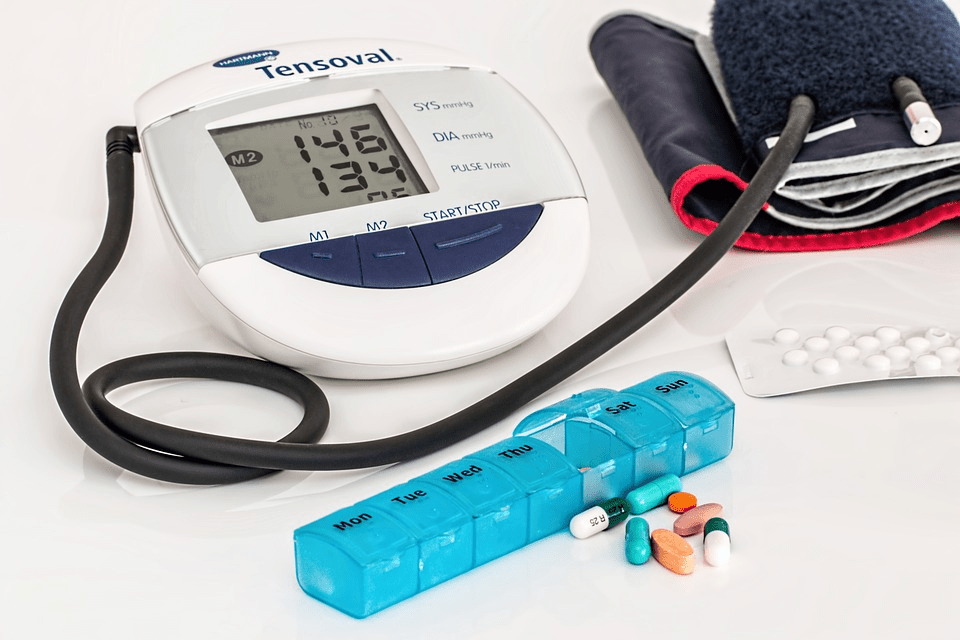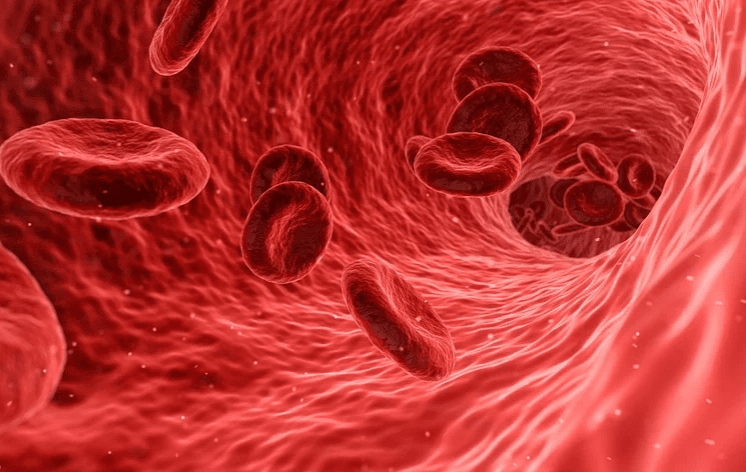Once you’ve been diagnosed with hypertension, your doctor may want to prescribe you medication to bring your high blood pressure to a more manageable level. It’s important to know what each of these medications does to understand your blood pressure treatment better.

Prescription High Blood Pressure Medications
You’ll need to get a prescription for these medications and have them filled by a pharmacy. Your doctor will then monitor your blood pressure and keep an eye on any potential side effects before renewing your prescription.
Beta- and Alpha-Blockers
Beta-blockers block the attachment of epinephrine (adrenaline) at the cellular level of blood vessels and heart muscle. This slows the heart rate, and your blood pressure decreases. Metoprolol is one of the most commonly prescribed beta-blockers.
Alpha-blockers instead block the attachment of norepinephrine at receptors in blood vessels, relaxing the walls of your arteries and improving blood flow. They are typically prescribed less often than beta-blockers because they aren’t as effective at reducing your risk of dangerous complications like stroke and heart attacks.
In some cases, doctors will prescribe both alpha- and beta-blockers or a single pill that combines the two effects. However, these are typically only used if hypertension gets bad enough to be life-threatening, and they’re rarely used as a routine management strategy.
Diuretics
Diuretics increase urine production, which is a natural way for your body to rid itself of excess sodium and water. They are naturally present in alcohol, caffeine, and certain teas, especially hibiscus tea.
Keep in mind that diuretics can put more strain on your kidneys, which can increase your risk of developing chronic kidney disease. Avoid them if kidney disease runs in your family or if you have other high-risk factors, especially since hypertension can be a precursor to kidney troubles.
ACE Inhibitors
Angiotensin-converting enzyme (ACE) inhibitors restrict the production of angiotensin II in your body, which is an enzyme that narrows your blood vessels.
By decreasing angiotensin II levels, normal blood pressure can be achieved. ACE inhibitors are offered as prescription medications, but they’re also a naturally-occurring effect of certain foods like dairy products and eggs.
Common ACE inhibitor medications include Lisinopril, Enalapril, Captopril, Benazepril, and Univasc.
Beta-blockers, diuretics, and ACE inhibitors can all cause issues with potassium levels. It’s important to have your potassium monitored when taking these medications.
Vasodilators
Vasodilator drugs dilate your blood vessels, which means they widen your veins and arteries. Blood is able to flow through them more freely, which reduces your blood pressure.

Vasodilators typically have very few side effects, and those that do occur are usually mild. However, if side effects of feeling light-headed or nausea remain persistent, you may need a dosage adjustment or an alternative medication.
Calcium Channel Blockers
Calcium can travel across the cell membrane of heart cells and blood vessel cells and cause smooth muscle contraction. It travels across the cells through channels. If more calcium travels across the channels, you get stronger smooth muscle contractions in the blood vessel walls causing the vessels to narrow.
Calcium channel blockers prevent the passage of calcium into these muscle cells, which means contractions are not nearly as forceful and the arteries don’t get so narrow. They lower your blood pressure by widening blood vessels and decreasing your heart rate.
Side effects include headaches, dizziness, swelling in your ankles, and palpitations.
Peripheral Adrenergic Inhibitors
Peripheral adrenergic inhibitors aren’t used very often as a high blood pressure treatment method, but your doctor may prescribe them if other medications haven’t been working well.
Rather than directly affecting your blood vessels, these drugs affect certain neurotransmitters in your brain that are responsible for telling the smooth muscles in your blood vessels to constrict. Without the constriction signal, blood vessels remain open wide enough for blood cells to pass through easily.
Since peripheral adrenergic inhibitors interact with your neurotransmitters, some have been linked to conditions such as depression or insomnia. You may also experience lightheadedness and fainting from low blood pressure if the medications’ effects are stronger than anticipated.
Over-the-Counter Medications for High Blood Pressure Treatment

Many people ask if there are any over-the-counter medications for high blood pressure.
There are currently no FDA-approved medications that reduce blood pressure available without a prescription, though some supplements may promise to do so. Before taking any supplement, speak to your doctor about potential drug interactions and general safety.
Final Thoughts
Medication isn’t the only available high blood pressure treatment. You can also use natural methods like changing your diet and exercising more to reinforce the positive effects of medications.
When in doubt, discuss your treatment options with your doctor.
